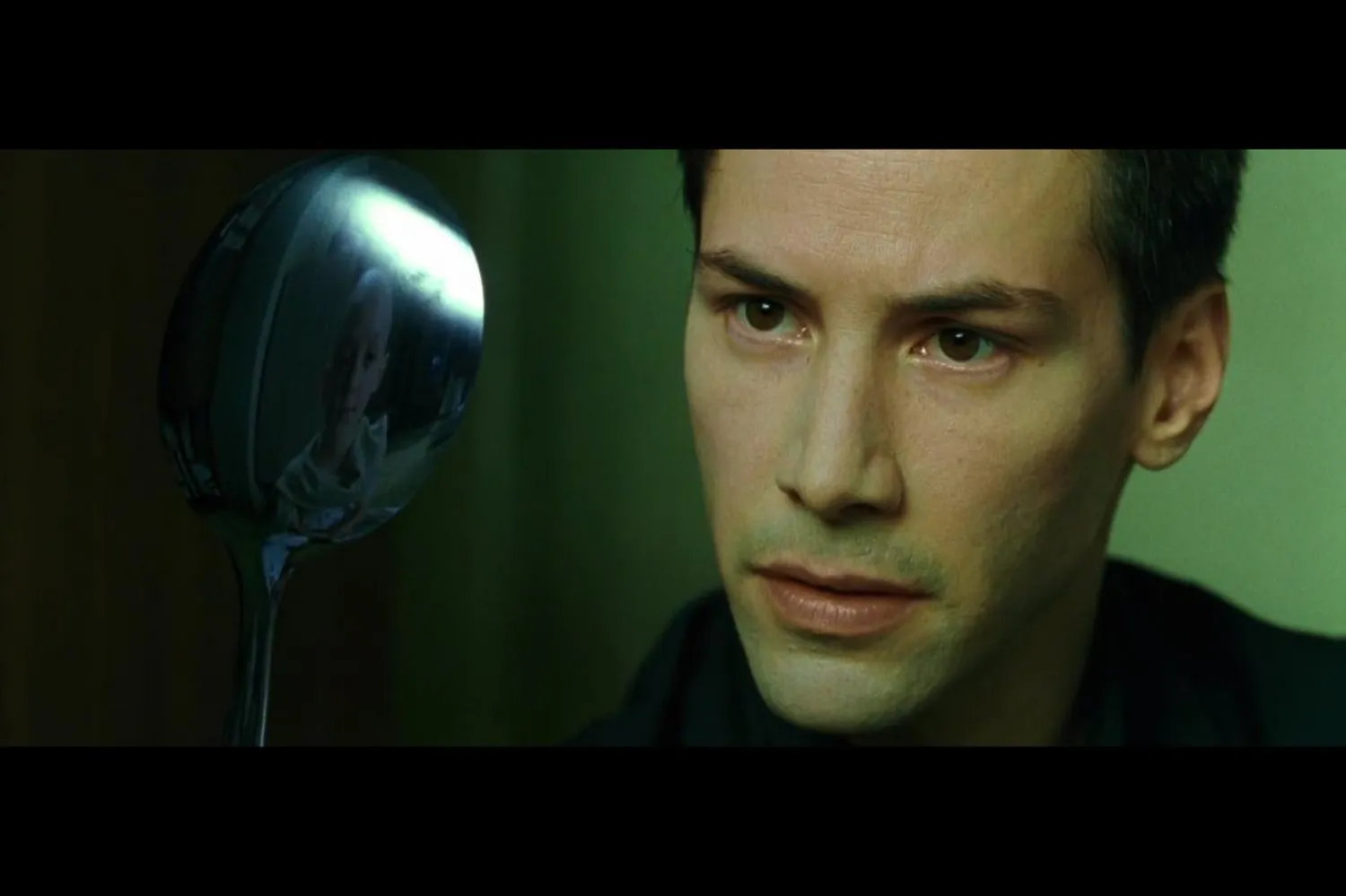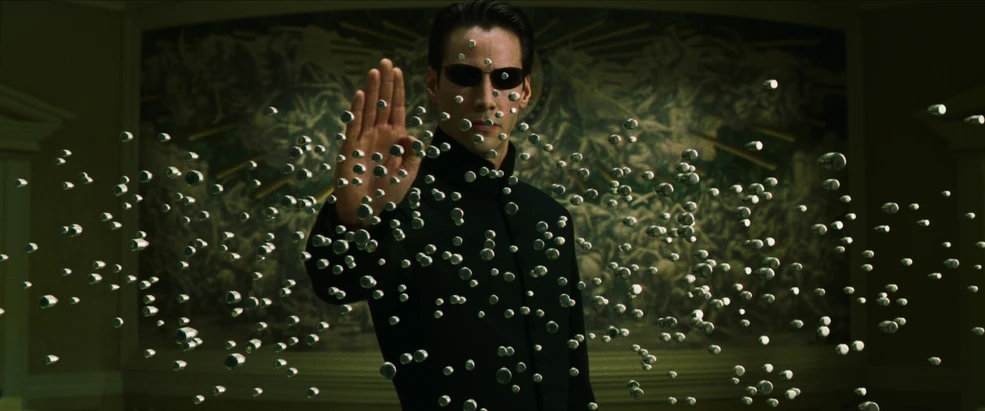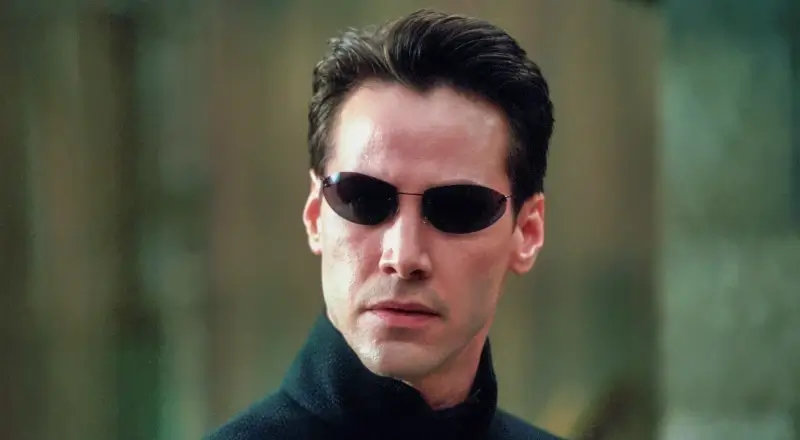In the vast landscape of cinema, few characters have captured the imagination quite like Neo, the hacker turned savior whose journey stands as one of the most compelling narratives ever told. His story transcends the boundaries of a simple action film, evolving into a modern retelling of one of humanity's oldest and most profound myths. From his awakening in a digital prison to his ultimate sacrifice for the freedom of mankind, Neo embodies the archetype of the hero, the messiah, and the one willing to give everything for those he loves.
The Man Behind the Code
Thomas Anderson was an ordinary man living an extraordinary double life. By day, he was a programmer at a large software corporation, a cog in the machine, enslaved to a system he neither built nor understood. By night, he was Neo, a hacker operating in the shadows of the digital underground. This duality is crucial to understanding who Neo truly was before his transformation. He was someone who felt fundamentally disconnected from the world around him, as if something essential was missing from his existence.
In the opening moments we witness Neo asleep at his computer, a symbolic representation of humanity's condition within the Matrix. The vast majority of people exist in a state of unconscious servitude, their minds trapped in an elaborate illusion while their bodies serve as biological batteries for an artificial intelligence. Yet Neo was different. He had always possessed an intuitive sense that reality itself was flawed, that beneath the surface of his mundane existence lay a truth far more terrifying and liberating than anyone dared to imagine.
His search for answers led him to pursue legends of a man named Morpheus, a figure the establishment media branded as a terrorist and a threat to society. Neo's willingness to seek out this dangerous individual, despite the official narrative against him, demonstrated something fundamental about his character: he was willing to question authority, to challenge the dominant paradigm, and to risk everything in pursuit of truth. This quality would define his entire journey.
The Call and the Refusal
The call to adventure came through coded messages and mysterious encounters, culminating in a meeting with Trinity on the Adam Street Bridge. In this pivotal moment, Neo encountered his first real test. When offered the chance to see the truth, he hesitated. Trinity had to persuade him, and even then, doubt lingered in his mind. This moment of hesitation is crucial because it grounds Neo's heroic journey in human reality. He was not born a hero; he was an ordinary man terrified of the unknown, reluctant to abandon the familiar comfort of his prison.
But Neo could not resist his calling forever. The pull of destiny, the whisper of intuition, the promise of truth, all proved too strong. He stepped into the car with Trinity, and from that moment onward, there would be no return to his previous existence.
Meeting the Mentor
When Neo finally met Morpheus, he stood in the presence of a figure who would fundamentally reshape his understanding of reality itself. Morpheus was more than a guide; he was a living embodiment of enlightenment and wisdom. He offered Neo the most consequential choice of his life: the red pill or the blue pill. Take the blue pill, and everything returns to normal. The memory of this moment fades, and you wake in your bed convinced it was all a dream. Take the red pill, and you see the world as it truly is, stripped of all comforting illusions.
This choice mirrors countless spiritual and philosophical traditions where the initiate must choose between comfortable ignorance and difficult truth. Neo, despite his fear, chose truth. He took the red pill and crossed the threshold into a new reality.
Awakening to Horror and Purpose
What awaited Neo beyond the veil of the Matrix was not enlightenment but horror. He discovered that his body was not his own but a biological machine, kept alive in a pod and used as a source of energy by artificial intelligence. His entire life had been a carefully constructed fiction, a dream within which billions of humans unknowingly served their digital masters. The real world was a desolate wasteland, dark and cold, yet paradoxically, it offered something the Matrix never could: the possibility of authentic freedom.
Morpheus saw something in Neo that he believed would prove transformative. He taught him to manipulate the rules of the Matrix through training simulations. He surrounded him with allies: Trinity, a warrior of unmatched skill; Tank, the operator who maintained their connection to the digital world; and others who had rejected the comfortable lie for the painful truth. But he also introduced Neo to his greatest enemy: Agent Smith, a program designed to protect the Matrix and eliminate all threats to its system.
The Tests and the Trials
As Neo's abilities developed, so did his understanding of the depths of his purpose. Each test brought him closer to a realization that Morpheus had been quietly nurturing all along. Morpheus had told him that the Matrix could not hold someone capable of transcending its rules, and he believed Neo was that person. The chosen one. The one prophesied by the Oracle to arrive at a moment when humanity needed him most.
But Neo was reluctant to accept this role. When facing Agent Smith in their first major confrontation, Neo found himself outmatched, struggling against an opponent who seemed faster, stronger, and more ruthless. Yet in that moment of apparent defeat, something shifted. After being shot and killed by Smith, Neo underwent a transformation. He was resurrected not as an ordinary man but as something more. His eyes opened to perceive the Matrix as pure code, a system of flowing green symbols that he could now read and manipulate at will. He had transcended the limitations imposed upon him. He had become the one.

The Burden of Messianic Prophecy
Yet this awakening brought with it a profound burden. Throughout his journey, those around Neo began to treat him as a savior figure. A hacker at his apartment had called him his personal Jesus Christ. Morpheus devoted himself to Neo's mission with the fervor of a religious disciple. The people of Zion looked to him as their deliverer from oppression. References to Neo's messianic nature multiplied throughout the trilogy, each one reinforcing the weight of expectation upon his shoulders.
Neo's transformation mirrored archetypal patterns found in countless religious and mythological narratives. The Oracle presented prophecies that seemed to define his destiny. Morpheus posed the essential philosophical question: Do you believe in fate? This question haunted Neo throughout his journey, for he had always insisted that he controlled his own life, that he would not be bound by predetermined outcomes. Yet as events unfolded, Neo began to understand a deeper truth: that choice and destiny were not opposites but intertwined aspects of a greater reality.
The Second Resurrection
Neo's journey did not end with his first confrontation with Agent Smith. Agent Smith evolved, spreading like a virus through the Matrix and eventually the real world, assimilating everything in his path. Neo found himself facing not just an enemy but a force of pure antimatter to his heroic purpose. In the second film, Neo discovered the deeper structure of his world. The Matrix was not something created by machines in a single act but a cyclical system that had been rebuilt multiple times. Each iteration produced an anomaly, a chosen one, who would bring down the system only to have it rebuilt anew.
Neo rebelled against this predetermined fate. He refused to accept the cycle. He would not allow the destruction of Zion and the reincarceration of humanity in an endless loop of salvation and subjugation. This refusal marked the moment when Neo transcended the role that had been assigned to him.
The Price of Redemption
As Neo's journey progressed toward its inevitable conclusion, he experienced a profound spiritual transformation. When he lost his eyesight in his physical body, he gained a deeper form of vision, perceiving the true nature of reality beyond the limitations of physical perception. He could sense the presence of Agent Smith not through his eyes but through an intuitive understanding that transcended ordinary sensation. This represented his evolution into a spiritual being, freed from complete dependence on the material world.
But the final test required the ultimate sacrifice. Trinity, the woman he loved, the warrior who had fought beside him and believed in him when he doubted himself, was taken from him. Her death stripped away Neo's last attachment to the world, leaving him alone with his duty and his destiny. Just as Jesus experienced spiritual isolation before his crucifixion, Neo walked his final path in solitude, his love surrendered for the salvation of others.

The Final Sacrifice
In the ultimate confrontation with Agent Smith and the machines, Neo made a choice that transcended all previous choices. Rather than fight for victory in the conventional sense, he chose to sacrifice himself. He allowed himself to be absorbed by Agent Smith, thereby carrying the agent's code into a realm where the machines could purge both Neo and Smith simultaneously. His arms were spread like one crucified, and a light emerged from his chest as his sacrifice was completed.
This act of self-immolation served a purpose far greater than the mere defeat of an enemy. Neo's sacrifice allowed for a fundamental transformation of the relationship between humanity and machines. The Matrix was rebooted, but this time with a crucial difference: humans were given the genuine choice to remain in the simulation or leave it. Free will, the most precious gift, was restored to humanity through Neo's willingness to give everything.
The Universal Myth
Neo's story resonates so powerfully because it taps into the deepest narrative structures of human civilization. The hero who sacrifices himself for the salvation of his people is a motif that appears across cultures and centuries. Jesus Christ became the archetypal embodiment of this myth in Western civilization, but the pattern repeats in Superman's willingness to die for humanity, in Spider-Man's constant sacrifice of personal happiness for the greater good, in countless stories that remind us of what heroism truly means.
What elevates Neo beyond a simple action hero is his embodiment of this universal archetype. He is not a superhero in the traditional sense but a deeply human figure transformed by circumstances and choices into something transcendent. His journey follows the ancient pattern of the hero's quest: the ordinary world, the call to adventure, the meeting with the mentor, the tests and trials, the ordeal of confrontation with ultimate evil, and finally, the sacrifice and transformation that brings redemption to those left behind.

The Legacy of the Chosen One
In the final analysis, Neo's greatest achievement was not his ability to manipulate the rules of the Matrix or his superhuman powers. It was his willingness to embrace his role as a savior figure, not out of pride or desire for glory, but out of love for those he sought to protect. He understood that true power consists not in domination but in the willingness to give everything for the freedom of others.
Neo's story teaches us that destiny and choice are not contradictions but complements. While Neo may have been fated to become the chosen one, what mattered was how he chose to respond to that fate. He could have accepted the cycle, allowing Zion to be destroyed so that a new iteration of the Matrix could begin. Instead, he chose to break the pattern, to sacrifice himself, to forge a new path for humanity.
The Matrix trilogy presents Neo not merely as a hero of action but as a mythological figure for the modern age, a character who embodies humanity's deepest yearnings for freedom, transcendence, and the possibility that one person's sacrifice might change the course of history. His journey reminds us that heroism is not determined by the powers we possess but by the choices we make and the willingness to give everything for what we believe in.